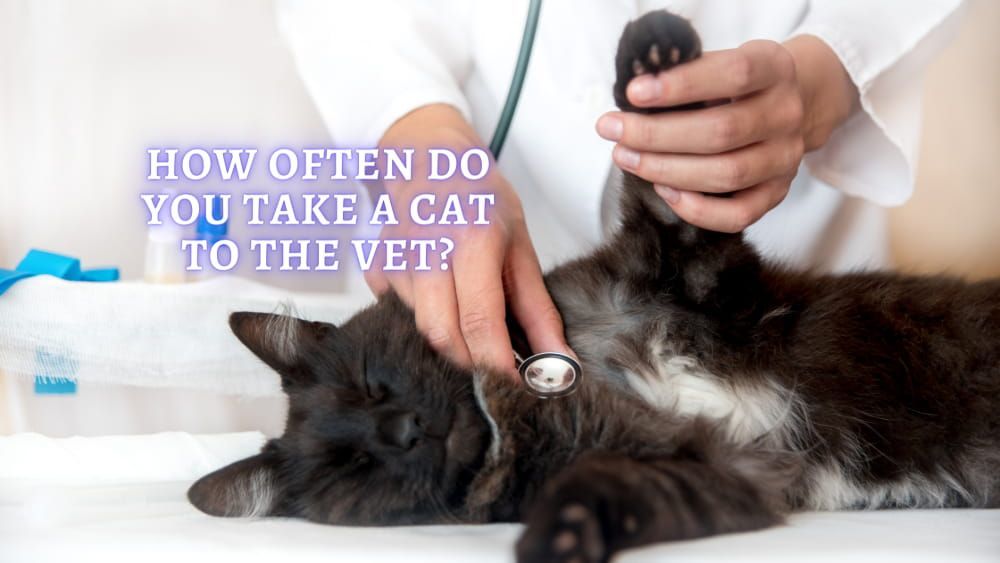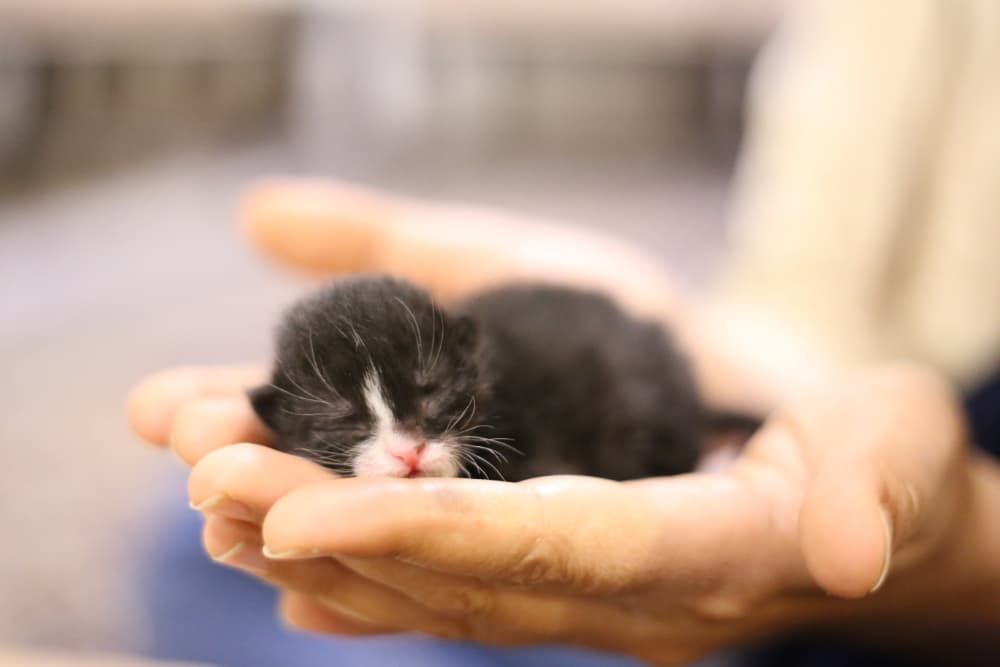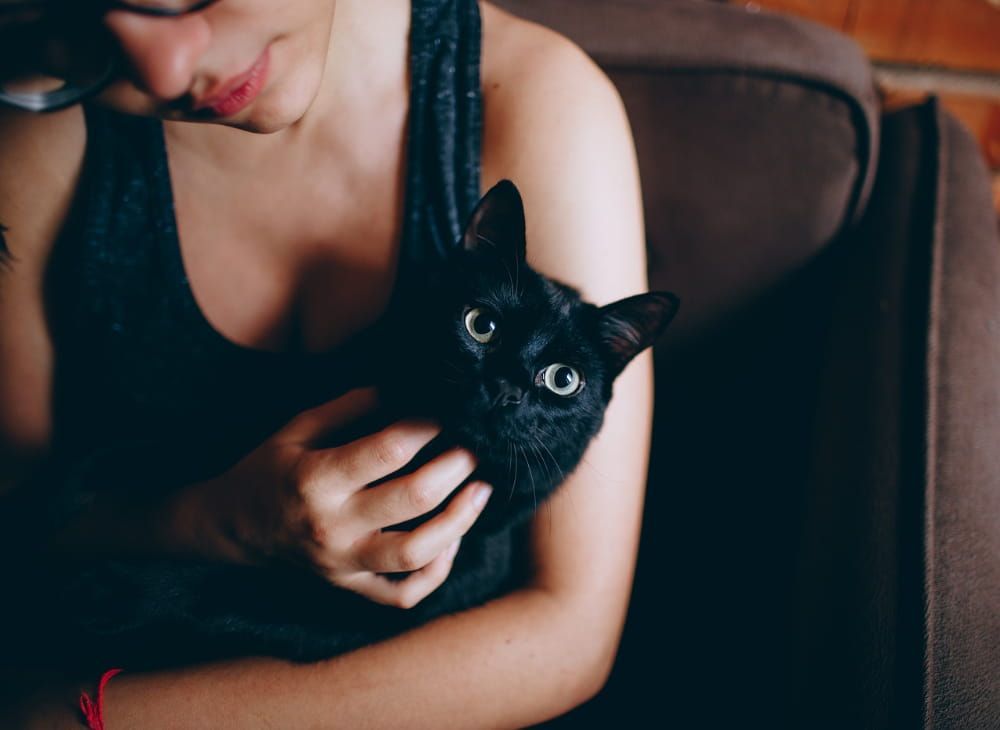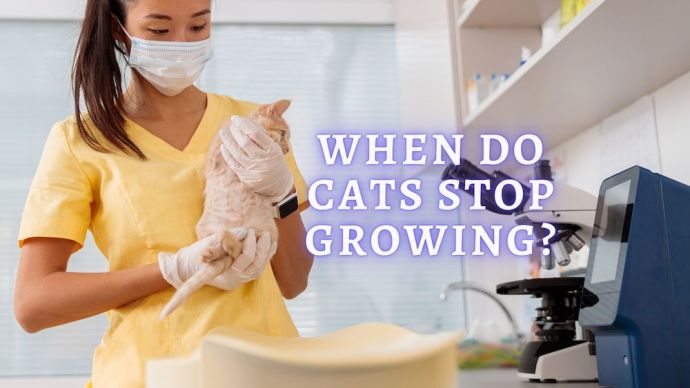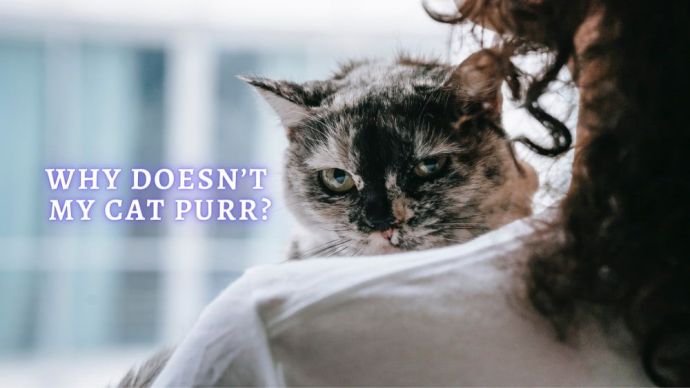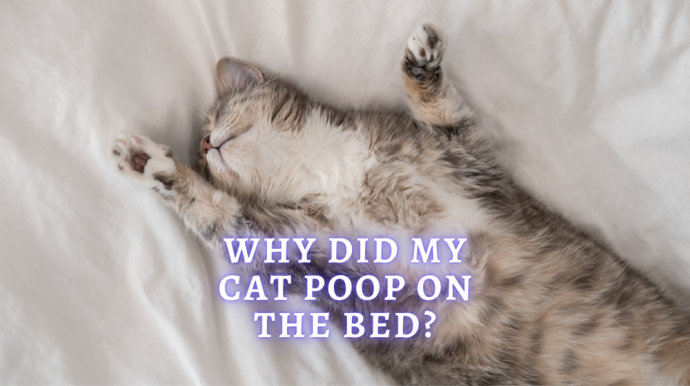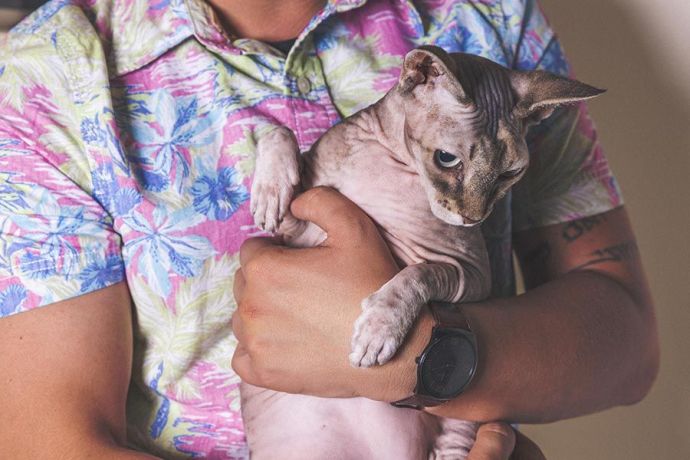How often do you take a cat to the vet?
Written by:
Author: Vicki Smirnova
Vicki Smirnova is a professional writer and editor who adores animals and helps readers get along well with their pets. She has been working in digital media for more than 5 years and has great experience writing content about lifestyle, including pets. Vicki specializes in dog health and nutrition, cat feeding, dog training. She is an aquarium lover and is passionate to write about fish care at home. Also, Vicki headed several websites and worked as a news editor.
View all 244 articlesLearn about our editorial process and veterinary review board.
Reviewed by:
Veterinary review
by Dr. Chyrle Bonk
Dr. Chyrle Bonk is an associate veterinarian since 2010 and was a volunteer for Clearwater County Youth 4H. Dr. Bonk contributed to various animal and veterinary related websites and magazines as a way to help keep animals across the globe safe and healthy. When Chyrle not working she spends her time with her own furry crew of dogs, cats, and horses.
View all 10 articlesLearn about our veterinary review board
Viewed: 177
Updated on: 06/22/2023
Unfortunately, our pets can not tell you if something is wrong with them. Therefore, the responsible owner should have regular veterinary examinations to catch health issues before they become big problems. This article will help you determine how often your cat should see a vet.
The yearly or biannual veterinary examine is essential for your cat’s overall health. Since cats can’t speak, the pet parents do not always notice that the pet has health problems. Therefore, routine examinations may help save the pet from developing severe issues and provide information on how to prevent health problems in the future.
Veterinary pet care is very important for the well-being of any pet. You can get vet’s advice from an expert on improving your pet’s life, help correct problem behaviors, and solve several significant problems. Routine veterinary examinations of the animal should take place from the earliest age. Their frequency depends on the type and breed of pet, age, lifestyle, and medical record. If you just got your cat, a veterinary wellness examination will help you make sure they are healthy. This is extremely important because breeders do not constantly conscientiously monitor cat’s health. [1]
Reasons to Vet Visits
As an owner, it’s essential to monitor your cat in the following areas:
- Nutrition/weight. The older your pet gets, the more likely it is to gain or lose weight, depending on the breed and health condition. Therefore, it is essential to feed your pet correctly. If you have doubts about your cat’s nutrition, consult your veterinarian.
- Physical activity. It can be difficult to encourage your furry friend to exercise. However, exercise is important to prevent weight gain and obesity. You can help your furry friend maintain an active lifestyle by choosing suitable climbing toys, interactive toys, and toys that both of you can use.
- Worm infestations, parasites. Regular visits to the veterinarian will help you find out if your cat has worms or other parasites and give you the proper treatments to remove them safely.
- Dental care. Most cat owners are unaware that their pet may be suffering from dental disease. Regular veterinary care and dental cleanings will help catch and treat a dental disease before it becomes a big issue.
- Vaccinations. Regular veterinary care is necessary to keep your pet up to date on the proper vaccinations to keep them healthy.
If your pet’s environment changes, you may also need to consult a veterinarian. Consult your doctor if the animal is facing changes in the environment:
- a flight or a long trip;
- moving to a new house, a trip to the country;
- meeting a new pet or family member;
- access to nature (if the pet has not been outside before).
Your veterinarian is also the best source of information on sterilizing your pet. They can provide you with the plusses and minuses of having this operation.
Attention! Be sure to find out about emergency care at your veterinary clinic – whether the chosen veterinarian can provide it to your pet. If the animal becomes seriously ill and requires urgent treatment, you will want to know how to contact your vet.
READ MORE: Most Common Signs of Nutrient Deficiencies in Cats
How often should you take a Kitten to the Vet?
During the first four months of life, the kitten should be seen by a veterinarian every month. Most of the time, the majority of these visits will fall to the breeder since most young kittens aren’t weaned and rehomed until two months of cat’s age. After your kitten is four months old, you can decrease this frequency to every six months. This is because small kittens are more vulnerable to certain diseases and health conditions.
Kittens should be vaccinated at around 8 and 12 weeks and can be sterilized around six months old.
READ MORE: Raising a Kitten: Guide
How often should you take a healthy adult cats to the vet?
Young cats aged 1-6 years should see a veterinarian at least once a year, preferably twice. Visits include general check-ups and vaccinations. Mature cats (7-10 years old) need to be examined twice a year by a veterinarian. Visits include a general examination, annual vaccination, and any tests or procedures that need to be performed.
Adult cats should also see a veterinarian anytime something seems off. If there is a change in appetite, water consumption, urination, defecation, or behavior, see your veterinarian help determine the cause.
How often should you take a senior cats to the vet?
Older cats are advised to visit a veterinarian every 3 months. This is because aging can cause health conditions that might not be noticeable until they get very severe. More frequent examinations and diagnostics by a veterinarian will help provide your family friend with the longest possible cat’s life. Visits include a general physical examination, annual checkups, annual vaccination, and any necessary tests.[2]
How to prepare your adult Cat for a visit to the Vet?
A visit to the vet means enormous stress for some cats; they may desperately resist and sometimes even scratch and bite. The recommendations below will help make your veterinary visit a calmer one.
Prepare the pet in advance. A few days before the visit, take out the carrier. Put in some of the favorite toys and treats so that they learn not to associate the carrier with trouble.
Cover the carrier. You can place a towel or blanket over the carrier to create a dark, calming space for travel. Make sure not to cover the carrier completely as your pet will still need air.
Choose a veterinarian that your pet will like. Ask for recommendations from relatives and friends who have pets. If your family friend has a strong negative reaction to a certain vet, look for someone that they find more favorable. Also, try not to make every vet visit an invasive one. Rather than only taking your stressed cat to the vet when they need a vaccination or a blood test, take them for a friendly examination where they get lots of pets and rewards without any negative feelings.
Signs of Pet Disease
Animals are very good at hiding illness – this is their normal instinctive behavior. But it can create many problems for us. Signs that your pet needs veterinary care include:
- cough;
- limp;
- diarrhea or vomiting;
- itching, skin irritation;
- bad breath;
- change in activity level;
- vision or hearing problems;
- changes in feces or urine and the frequency of their occurrence;
- changes in appetite or water consumption;
Each symptom can have several causes-from neurological problems, infections, stress, and parasites. The veterinarian will determine the cause of the problems and the best treatment. Be prepared for a detailed survey about changes in your pet’s behavior, diet, environment, and living conditions. If you observe symptoms for several days, try to record all the changes – this will help the doctor make the correct diagnosis.
Routine veterinary care is necessary if you want your pet to stay healthy and happy. See your vet at least once a year and keep them up to date on vaccinations to ensure a long, healthy cat’s life.
READ MORE: How to tell if my cat is sick?
FAQ
Do cats really need to go to the vet?
All animals, like humans, need regular health care. Unfortunately, cats can not complain of malaise. Therefore, the responsible cat owners should periodically have their cat examined by a professional.
How often do cats need checkups?
Kittens should see a vet at least twice a year, preferably every month until around six months of age. Young cats aged 1-6 years should see a vet annually or biannually. Mature cats (7-10 years old) need to be examined twice a year by a veterinarian. Older cats are advised to visit a veterinarian every 3 months.
How much does it cost to take your pet to the vet?
A routine veterinary checkup of the pet will cost about $ 45 – $55.
When should I take my cat to vet?
In general, your adult pet should visit a vet annually. If you notice signs of disease, then you should immediately contact your veterinarian.
How often should you take indoor cats to the vet?
An adult domestic cat should be taken to the veterinarian a couple of times a year. Visits include a general examination, annual vaccination. Senior cat should be examined every 3 months. The older the cat gets, the more often it needs to be shown to the doctor. This will give the longest possible cat’s life.
Do cats need to see a vet every year?
A responsible cat owners should take the time to take the cat to the vet at least once a year. Preventive check-ups are inexpensive, and the benefits are enormous.
Is it OK if I never take my cat to the vet?
If the animal lives in places where there are parasites (ticks, fleas, mosquitoes), then it is impossible to do without a veterinary examination. These insects carry many diseases (babesiosis, anaplasmosis, ehrlichiosis, borreliosis, dirofilariasis), which can lead to the death of a cat if not treated in time.
Do cats need yearly vaccinations?
The first vaccination for a kitten is done at 2 months, the second – at 3 months, then the cat is vaccinated at 1 year, then – annually throughout life.
Article Sources:
- Watson, Tim D. G. “Diet and Skin Disease in Dogs and Cats.” Oxford Academic, 1 Dec. 1998, academic.oup.com/jn/article/128/12/2783S/4724467.
- “The Special Needs of the Senior Cat.” Cornell University College of Veterinary Medicine, 8 Sept. 2020, vet.cornell.edu/departments-centers-and-institutes/cornell-feline-health-center/health-information/feline-health-topics/special-needs-senior-cat.
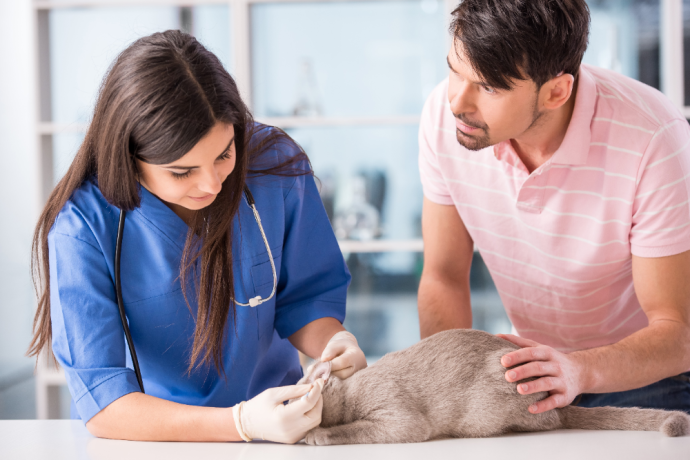 Cat Veterinary Tips Cat Fleas and Ticks: How to get rid of Fleas on Cats? (Vet Advice)
Cat Veterinary Tips Cat Fleas and Ticks: How to get rid of Fleas on Cats? (Vet Advice) - 185
- 0
 Cat Care Veterinary Telemedicine: How telemedicine can help manage chronic conditions in pets?
Cat Care Veterinary Telemedicine: How telemedicine can help manage chronic conditions in pets? - 568
- 0
 Cat Care Why Does My Cat Attack My Legs? 10 Reasons Why and What To Do About It (Vet-Approved Advice)
Cat Care Why Does My Cat Attack My Legs? 10 Reasons Why and What To Do About It (Vet-Approved Advice) - 46013
- 21
 Cat Veterinary Tips Cat Stomach Gurgling: Vet Advice on Why is Your Cat Stomach Gurgling?
Cat Veterinary Tips Cat Stomach Gurgling: Vet Advice on Why is Your Cat Stomach Gurgling? - 36469
- 4
 Cat Veterinary Tips My Cat Lost its Voice: Can Cats get Laryngitis? (Vet Advice)
Cat Veterinary Tips My Cat Lost its Voice: Can Cats get Laryngitis? (Vet Advice) - 23554
- 13









